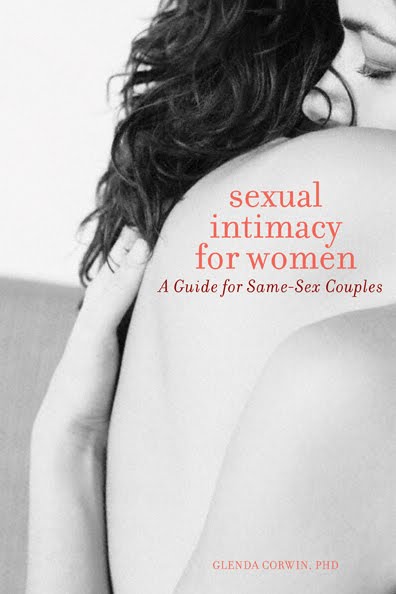
Nothing changes your life like having a child. However it happens—childbirth, adoption, surrogacy, becoming a stepparent—the experience of nurturing and guiding a little human being can fill your heart, test your nerves, challenge your limits, and turn your world upside down.
Same-sex couples go to a lot of trouble to become parents. We don’t get pregnant accidentally. We have to use awkward, emotionally complex, expensive methods like adoption, donor insemination, in-vitro fertilization, and surrogacy. We have to be seriously motivated to make this life change happen.
And then, this transforming event wreaks havoc on your romantic relationship. The arrival of a child often signals the departure of your sex life. Research with heterosexual parents shows a 70 percent decline in marital satisfaction after the first baby comes, and sexual frequency dwindles drastically. Among the 50-60 lesbian mothers I know, most say that sexual intimacy happens very rarely, or not at all. How do you get “in the mood” with all that fatigue, lack of privacy, and constant caretaking? Who wants more physical contact after handling a baby all day and night? When would you have the time?
 Why should you try? Three reasons: sustained sexual intimacy seems to be good for you, for your relationship, and for your children. You get to remember that you’re still a sexual being, not just a baby caretaker. You and partner get to have that deeper level of closeness that bonds you to each other. And your children get to have role models for adult intimacy, which comes in handy when they grow up and want to fall in love—and stay in love—with a secure partner. This is something precious for your family: your active love life makes you a better partner and parent, which helps all of you be happier.
Why should you try? Three reasons: sustained sexual intimacy seems to be good for you, for your relationship, and for your children. You get to remember that you’re still a sexual being, not just a baby caretaker. You and partner get to have that deeper level of closeness that bonds you to each other. And your children get to have role models for adult intimacy, which comes in handy when they grow up and want to fall in love—and stay in love—with a secure partner. This is something precious for your family: your active love life makes you a better partner and parent, which helps all of you be happier.
GETTING HELP AND SETTING BOUNDARIES FOR YOUR SEX LIFE
The data about sex and parenthood is daunting—and yet, there are some wonderful examples of couples who love their children and also love each other as sexual partners. When I’ve talked with couples who do succeed in sustaining sexual intimacy after children, two factors seem most important: good boundaries, and lots of help.
These couples have what family therapists call “appropriate generational boundaries.” They meet their adult needs with adult partners and their mothering needs with their children. Sounds good in theory, but what happens when “appropriate generational boundaries” collide with real life? Sometimes it means letting your child get upset because you’re going out with your partner instead of staying home with her. Of course, it may ruin the first part of your date but hopefully you can get your attention re-focused before the night is over!
As for getting lots of help…lesbian friends are famous for stepping in to help when needed, and this is when you really need it. Some queer parents have developed very creative ways to help each other with child care. In one group of four mothers, each takes one Saturday night per month to keep all of the children, so the other parents can have a Saturday night date. Other couples take vacations together, so they can take turns watching the children while each couple gets a few hours alone. Having someone keep the children overnight is the best. One friend told me she needs “at least 24 hours and 60 miles out of town” before she can relax into a sexual mood with her partner. She and her partner often trade child-care weekends with another couple who also have children, so they can get the required miles away to re-connect.
Many lesbian couples may be uncomfortable being that open with their friends and family—and with each other—about blatantly setting up a sexual scenario for themselves. In contrast to heterosexual couples, we don’t usually have a whole network of people sending us off on a honeymoon, which is a socially desirable, family-condoned heterosexual ritual to celebrate marital/sexual bliss. But we need to celebrate this aspect of adult life, too.
There’s more social support for women mothering than for going off together for a sexual rendezvous. We’ve internalized that reinforcement, and find it far too easy to get consumed with parenting and ignore adult intimacy needs. We also feel tremendous responsibility for our children, and may feel guilty for turning them over to someone else just so we can have some personal pleasures. There are many “logical” arguments against making the time for intimacy, but the consequences of neglect are serious and obvious…drifting apart, losing vitality, growing resentment.
If protecting your sexual intimacy with your partner drops to the bottom of your priority list, you are not only cheating yourselves. You’re cheating your children. How can you help them grow up and have a relationship that’s emotionally and sexually fulfilling, if you don’t show them a model to work with? Would you want them to emulate an obsessive focus on parenting, disinterest in a partner, and a life of personal sacrifice?
Seeing two adults who are committed and romantic with each other is a wonderful gift for our children. In our preoccupation with being good parents, we forget that children learn most by observing. It’s good for them to know that adults have something special and private that they too can grow into someday. They can see the tender attention, and the warm afterglow, and know that something magical is happening. It’s accessible magic. Talking with your partner about your intimate life, making time just for each other—this is how you bring magic into your relationship, and thereby into your family. Your children will appreciate it!
Glenda Corwin, Ph.D. is an Atlanta-based clinical psychologist who has been in private practice for more than 20 years. She provides gay-affirmative psychotherapy, and consults with professionals and the general public on sexual issues for women in same-sex relationships. Dr. Corwin leads weekend sexual intimacy workshops for women, and in 2007 conducted a research project investigating lesbian sexual patterns.
The very positive responses to her workshops and research were the inspiration for the book Sexual Intimacy for Women: A Guide for Same-Sex Couples (Seal Press, $16.95, June 2010). She is currently working on a book for single women, focused on dating and sex. For more information about Dr. Corwin and her work, visit www.DrGlendaCorwin.com.































